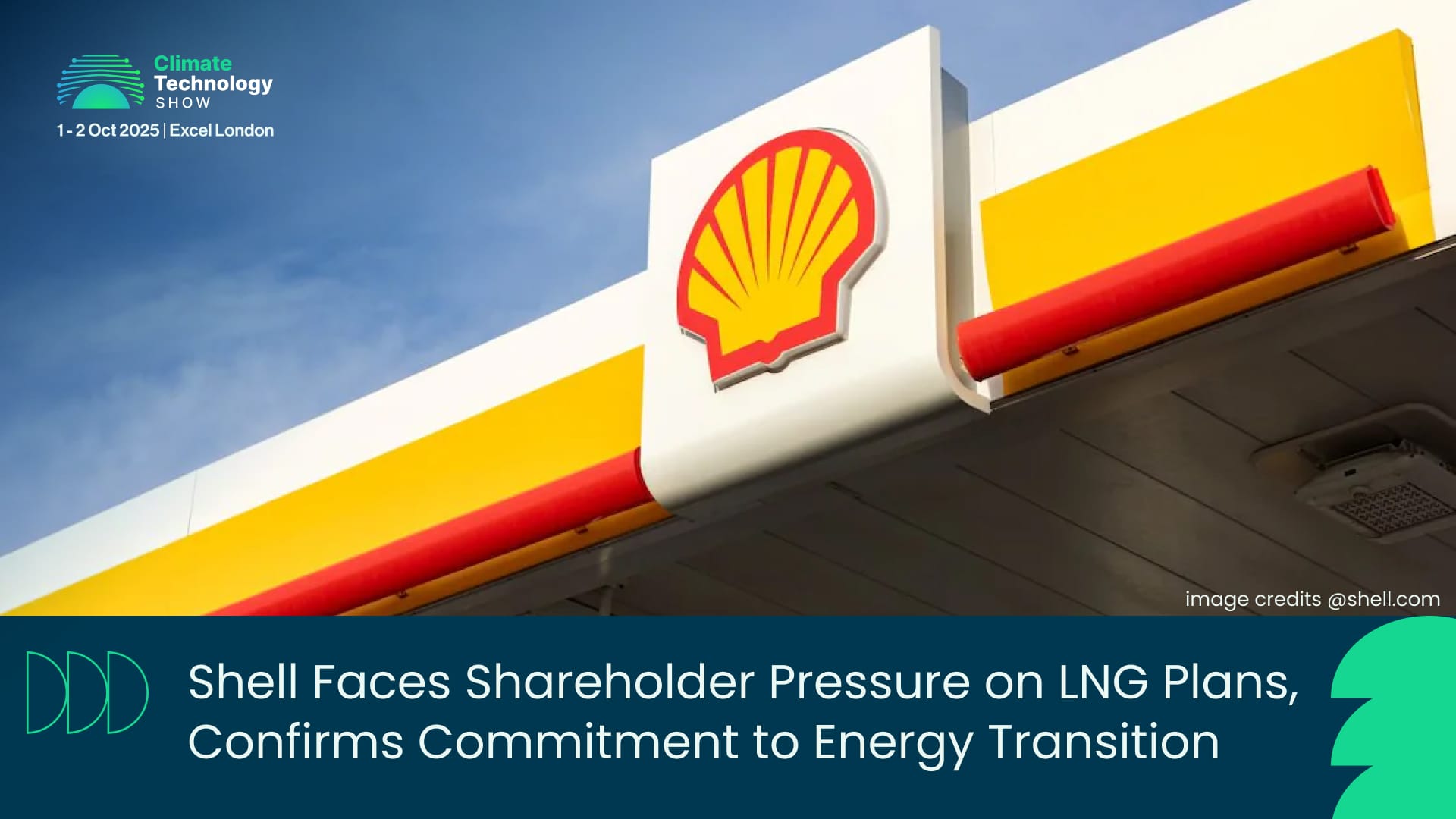LONDON, 20 May 2025 — Shell has come under increased shareholder pressure over its approach to liquified natural gas (LNG), with 20.56% of investors backing a climate-focused resolution at its annual general meeting (AGM) held near Heathrow Airport on Tuesday.
The shareholder proposal called for Shell’s board to disclose whether and how its LNG demand forecast, production and sales targets are consistent with its climate goals.
“Today’s vote sends a strong message that shareholders will not sit back as Shell doubles down on growing its liquified natural gas production despite its own stated climate commitments,” said Jackie Garton, senior corporate climate campaign manager at ShareAction.
While the resolution is not legally binding, support exceeding 20% is widely considered a significant indicator of investor concern and places an obligation on the board to consult shareholders and provide a formal response.
Previous climate-related resolutions at Shell have received between 18.6% and 30.5% support in recent years, highlighting a consistent level of engagement on the company’s climate strategy.
Shell said it will “meet its obligation to explain what actions it will take to consult with shareholders to understand the reasons why just over a fifth supported the resolution.”
In his opening address, chair Sir Andrew Mackenzie defended Shell’s LNG strategy, citing its importance for energy security and as a cleaner alternative to coal.
“Shell believes the world needs more liquified natural gas to replace coal in Asia for energy security, and to complement and enable renewables,” he said.
“So we expect LNG will play a critical role in the transition.”
Sir Andrew also pointed to sustained demand for fossil fuels, stating: “Let’s be clear, no business can operate outside the rules of supply and demand. So for the energy transition to succeed, there must also be demand for low carbon options from customers who are willing and able to pay for it.”
During the nearly three-hour meeting, Shell’s leadership faced repeated questions about the company’s climate commitments and its path to net zero by 2050.
When asked whether Shell would meet the resolution’s demands, CEO Wael Sawan responded: “There is not a company that discloses more or better information on LNG than Shell.”
“Challenging and providing input is very welcome but let's have those engagements and not do it through the resolutions.”
He also urged shareholders not to back similar proposals in future.
“What they are undermining is the ability of the board that you have elected to be able to drive the strategy of the company to do their job,” he said.
“Challenging and providing input is very welcome but let’s have those engagements and not do it through the resolutions.”
The resolution was co-filed by Brunel Pension Partnership, Greater Manchester Pension Fund, Merseyside Pension Fund and the Australasian Centre for Corporate Responsibility (ACCR), with support from ShareAction and over 100 individual investors.
Following the vote, Jackie Garton reiterated: “It’s worrying that instead of addressing their concerns, Shell repeatedly shifted the blame for their oil and gas production growth plans onto consumers during its annual general meeting.”
Mark van Baal of activist group Follow This, which did not submit a resolution this year, commented: “Today’s AGM demonstrates that more and more shareholders do not accept that the board puts the future of the company at risk by stubbornly sticking to a century old business model that risks being disrupted within five years.”
In a statement following the meeting, CEO Wael Sawan said: “Shell’s shareholders have strongly backed our strategy to deliver more value with less emissions as outlined at Shell’s Capital Markets Day 2025.
Our focus on performance, discipline and simplification enables us to invest in providing the energy the world needs today, and in helping to build the low carbon energy system of the future.”
As the meeting took place at a hotel near Heathrow, environmental groups said they were unable to stage protests on site due to a High Court injunction prohibiting demonstrations at the airport. Activists from Amnesty International UK, Fossil Free London, and the Justice 4 Nigeria coalition instead gathered outside Shell’s global headquarters in London.
Sacha Deshmukh, chief executive of Amnesty International UK, described the effect of such injunctions as “chilling.”
Areeba Hamid, co-executive director of Greenpeace UK, accused Shell of “hiding” behind the injunction to “shut down legitimate questions about its operations.”
Shell denied choosing the venue because of the injunction, stating it was selected “purely based on availability.”
Heathrow Airport also issued a statement clarifying: “For the avoidance of doubt, Heathrow Airport Limited does not consider that the terms of the injunction have the effect of prohibiting or restricting the lawful attendance of any shareholder at the Shell AGM.”

